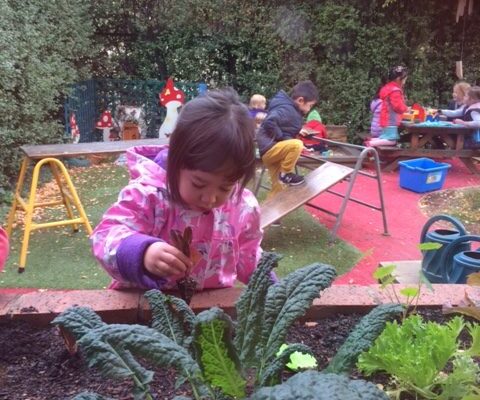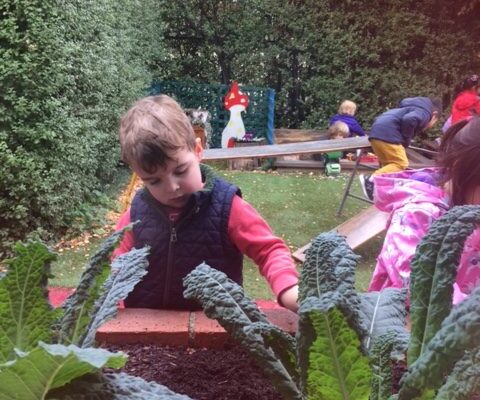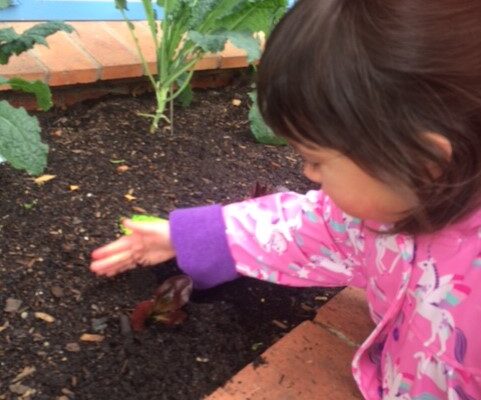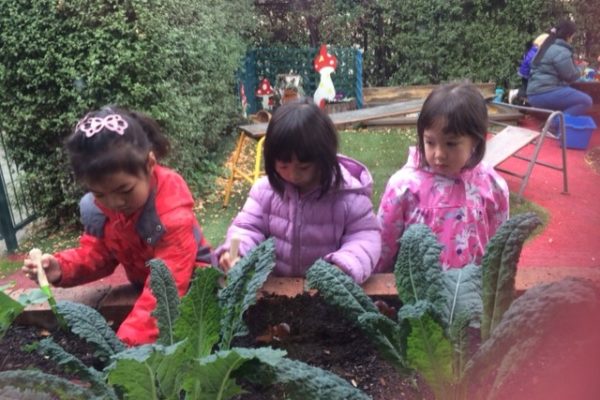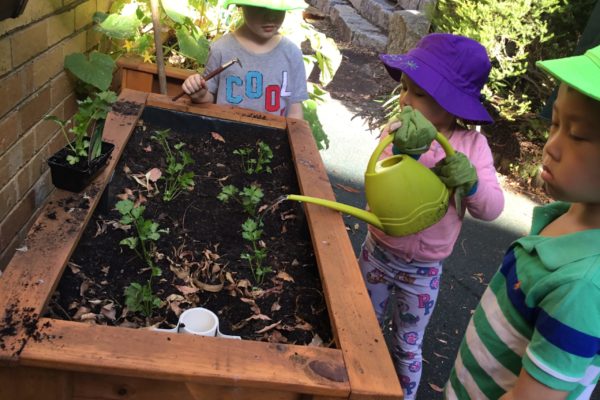Our Pre School supports children to develop their awareness of sustainability principals and how our actions can have an impact on the world around us. Through hands on learning experiences we engage children in learning knowledge, skills and values which develop their ability to maintain their own wellbeing – and that of their community and the planet.
Sustainable practices are embedded across the kindergarten, through growing our own vegetables in our garden, composting fruit and vegetable scraps or learning to sort our recycling from landfill waste.
Our programs also provide opportunities for children to engage in learning about sustainability through the wider community, such as our excursion to Edendale Farm where children learn what farms produce and how animals, plants and insects contribute to our environment.
